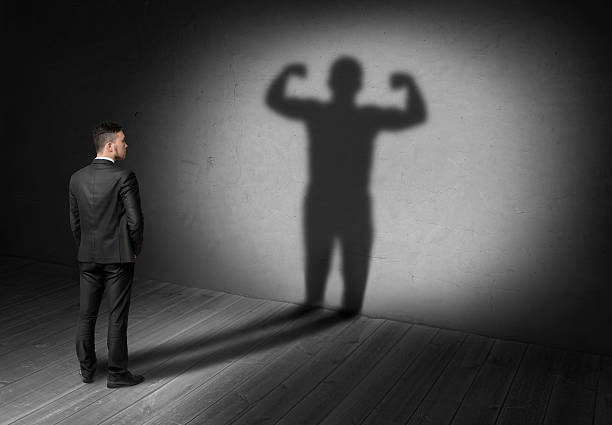Recently, the term “toxic masculinity” has been widely discussed in terms of gender roles, society, and personal actions. It's often used to describe a form of masculinity that is harmful not only to those who don't conform to traditional gender roles, but also to men themselves. However, the conversation is shifting towards “fragile masculinity” for a more in-depth understanding of these issues. Here, “fragile” refers to the vulnerability in men's identity, shaped by societal expectations, rather than implying weakness. This reframe is not just semantic; it's crucial for fostering a healthier, more inclusive society. Understanding the distinction between toxic and fragile masculinity, and why it matters, can help us all contribute to a culture that uplifts and supports every individual's well-being.
Understanding the Nuance: Toxic vs. Fragile Masculinity
Masculinity is often associated with aggression, emotional repression, and dominance. However, these behaviors are not so much central to masculinity as they are symptomatic of a larger issue. Labeling them as “toxic” risks condemning masculinity in its entirety, which can alienate rather than educate.
Enter the concept of “fragile masculinity,” which brings a crucial nuance to the conversation. This view doesn't blame masculinity itself but focuses on the insecurities that lead to these negative actions. It recognizes that societal pressures and a rigid understanding of what it means to be “manly” can lead men to act in ways that are ultimately harmful to themselves and others. Here, fragility refers to the insecurity within one's masculine identity, not a weakness but a state influenced by external expectations.
Why Recognizing Fragility Matters:
- Empathy and Change: Understanding that these behaviors come from insecurity, not evil, helps us respond more empathetically. It opens doors to conversations that tackle the root causes, like the stigmatization of vulnerability among men.
- Preserving Positive Traits: By changing our discussion, we recognize that traits such as courage, strength, and protectiveness are good aspects of masculinity. The issue lies in societal distortions of these traits, not in masculinity itself.
Implications for Culture and Society
Accepting fragile masculinity has significant effects on our culture and society. It fosters a more inclusive definition of masculinity, enabling men to express vulnerability, seek emotional support, and participate in traditionally “feminine” activities without fear of judgment. This shift encourages healthier relationships, improved mental health for men, and a reduction in gender-based violence and discrimination.
Media representations are pivotal in reshaping our views on masculinity. A notable example is Waymond Wang from “Everything Everywhere All at Once.” His character, who is nurturing and emotionally expressive, challenges traditional male stereotypes and presents a refreshing narrative on masculinity. These portrayals can greatly change how the public views masculinity and encourage a more profound understanding, advocating for acceptance of vulnerability and emotional openness in men.
Understanding fragile masculinity also helps dismantle the rigid gender norms that constrain everyone, regardless of gender. It champions the notion that all individuals should have the freedom to express themselves authentically, without being confined by societal expectations of what it means to be “masculine” or “feminine.”
Moreover, this understanding can significantly influence how we approach education, mental health, and community support, fostering environments that cultivate emotional intelligence and resilience. In the workplace, shifting our perspective from viewing behaviors through a lens of toxicity to one of fragility can enhance how we address interpersonal issues and conflicts, leading to more productive and supportive professional relationships.
Moving Forward
To cultivate a society that supports the development of a healthy, secure masculine identity, we must start by embracing and promoting a broad spectrum of emotional and social skills in all genders. This includes dismantling harmful stereotypes and encouraging traits like empathy, cooperation, and open communication.
Educational programs, media representations, and policymaking play pivotal roles in this transformation. By advocating for and implementing change in these areas, we can help individuals build a secure sense of self that is not threatened by gender expectations but enriched by a full spectrum of human experiences.
Calling it “fragile masculinity” instead of “toxic masculinity” is more than changing terms; it's a call to action. It invites us to understand and address the insecurities underlying harmful behaviors, promoting a more empathetic and inclusive approach to gender identity. This change is crucial for creating a culture that supports everyone, allowing us to express ourselves fully and respectfully, free from old stereotypes. Let's embrace this shift and move towards a society where masculinity is not a shield for fragility but a celebration of true strength in diversity. By shifting our perspective from toxicity to vulnerability, we challenge harmful stereotypes and embrace a broader, more inclusive expression of strength and resilience.
Further Exploration
This book offers insight into the various masks men wear to fit societal expectations of strength and stoicism. Howes discusses how these facades can hinder genuine emotional connections and explores ways men can embrace vulnerability.
bell hooks provides a profound examination of how societal norms impact men and advocates for a transformative understanding of masculinity that includes the ability to give and receive love. This book is crucial for anyone interested in understanding how traditional masculine norms can be reshaped to foster more inclusive emotional expressions.

:max_bytes(150000):strip_icc()/manliftingbarbell-5d0eae78c0684ac093fd50e82d1968ef.jpg)













